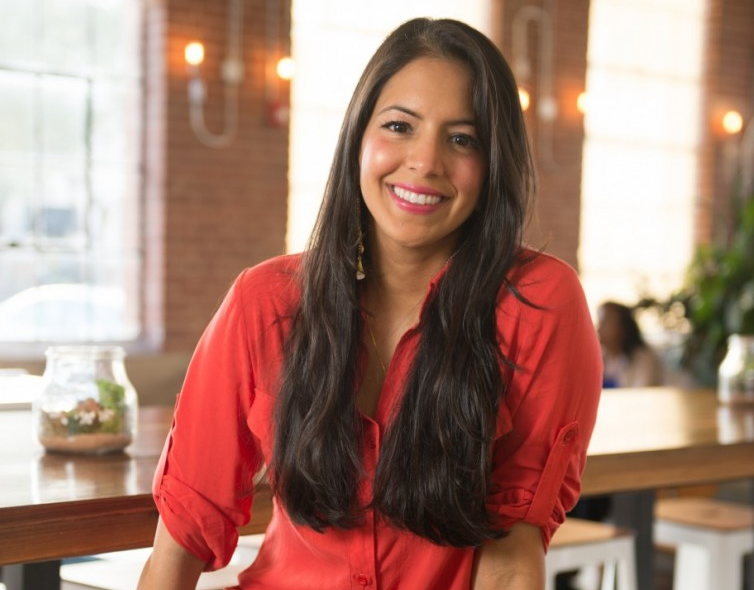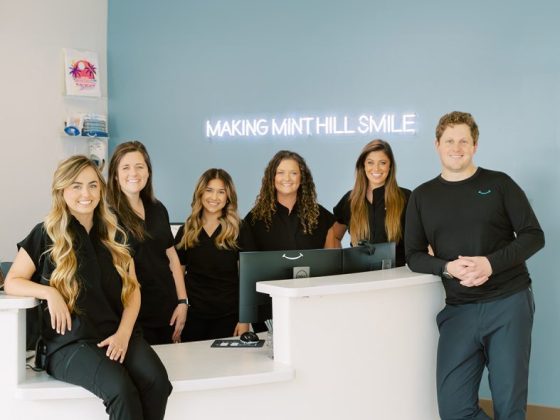In the decade since Morgan Spurlock filmed the real-time health effects of stuffing himself with a month’s worth of fast food in the 2004 “Super Size Me”, the topic of health and nutrition edged squarely into mainstream consciousness in a way it had never before. Today, organic options are readily available, fast food chains offer salads and cut down portions, soda sales have plummeted, and the healthy eating industry is booming.
In the midst of this changing tide, Vani Hari, a born-and-raised Charlottean, was coming into her own health revolution. Today, Hari is a major vehicle for nutrition activism and education, a New York Times best-selling author, and a social media force with a blog and over a million Facebook followers. Her main goal is twofold: she strives to create a massive community of people that not only care about their own health on the individual-level, but who also want to create a safer, more sustainable food system for everyone. She fills a unique niche with her mix of exposé-style blog posts and grass-roots petitioning efforts against the use of chemicals and additives.
“I began my food journey, like most people, by following the standard American diet,” Vani shares. “As a child and young adult, I ate a lot of processed foods and later in life as a management consultant, I was either in the office eating whatever take-out was available, or I was on the road eating every meal out. Over the holiday season over ten years ago, I found myself in a hospital bed. I was sick, overweight, and I was ready to change. I made a personal promise that from that point on that I was going to make health my number one priority.”
This story may sound like a familiar one – a person reaches a tipping point with their health and then resolves to clean up, lose weight, and change their ways once and for all. But this is only a small part of the journey that ultimately led to the discovery of what Hari refers to as her “life’s mission.”
One of the things that fascinated Hari the most was learning about the industrialized food system and the chemicals and unknown ingredients lurking in processed foods. Hari says that her friends and family began to encourage her to blog to spread the information she was uncovering. In spring of 2011, she launched her blogging website, FoodBabe.com
Less than a year into her website launch, Hari took a leap of faith. She quit her corporate career of 13 years, without having yet made a dime from the blog, so she could pour in full-time hours. From there, things took off quickly. Last year, her site had a reported 52 million visitors and she averages over 3 million unique visitors each month.
Her main message to the average person? Learn where your food comes from and keep it simple. If it’s in a package, make sure you “know what every ingredient is and why it’s there.” Eating well doesn’t come at the expense of eating food that tastes good or mean you must eschew foods that are part of a cultural heritage, like many of the recipe mainstays of the south. It all comes down to simplifying and becoming hands-on with the food we put in our bodies – using the sorts of fresh ingredients prepared in your own home, Hari explains.
Over the past four years, Hari has thrown herself into gaining a following strong enough to enact some major change in the American food system on the policy-level. She began successfully lobbying some of the largest food corporations, including Kraft, Chick-fil-A, General Mills, Panera Bread, Anheuser-Busch, and Starbucks, to change some of what she identifies as dubious ingredients in their products.
In 2011, Hari wrote a piece about ingredients used in Chick-fil-A sandwiches and the company responded to Hari’s post requesting they meet. After, as part of a larger effort to improve their products, Chick-fil-A announced that it was beginning to remove many of the ingredients Hari lobbied against, from corn syrup to the widespread use of antibiotics in their chicken.
It turns out, people do care where their food comes from. Her petitions regularly get hundreds of thousands of signatures.
“One individual consumer can be a catalyst for a lot of change by just sharing what they have learned,” Hari says. “When consumers begin to notice where their health is being compromised they can begin to make better choices.”
Unsurprisingly, tackling large-scale corporations and lobbying so strongly for a particular set of beliefs comes with its share of detractors. Hari tries to take the negativity inherent in launching a career with such a strong web presence in stride.
“There is so much that needs to change so I focus on keeping my eye on the ball and celebrate the victories along the way,” she says simply. “My vision of what is possible for the health of this nation is what keeps me motivated. If I’m ever feeling discouraged it is only because I have lost sight of that vision.”
The native Charlottean, who graduated from UNCC, released her book, “The Food Babe Way” in 2015 and in spring of this year was named one of Time’s “30 Most Influential People on the Internet.”
Hari sees lots of exciting things happening right in the Queen City. She names Luna’s Living Kitchen, Atherton Market, Berrybrook Farms, Stagioni, Woodlands Indian Cuisine, and Littlespoon as among her favorite places to grab a bite when she’s at home. The Queen City is also home to organic farming ventures, like Poplar Ridge Farms, and farmer’s markets that operate both seasonally and year-round.
As for what’s next for the self-made business woman and food advocate? Hari has had a whirlwind year with the release of the book, and shows no signs of slowing down.
“There is a revolution happening and there have been so many sweeping changes so far this year as major brands are going organic, non-GMO, and dropping artificial ingredients from their food. But, we’ve still got a long way to go, and there’s a lot more work to do,” she says.












